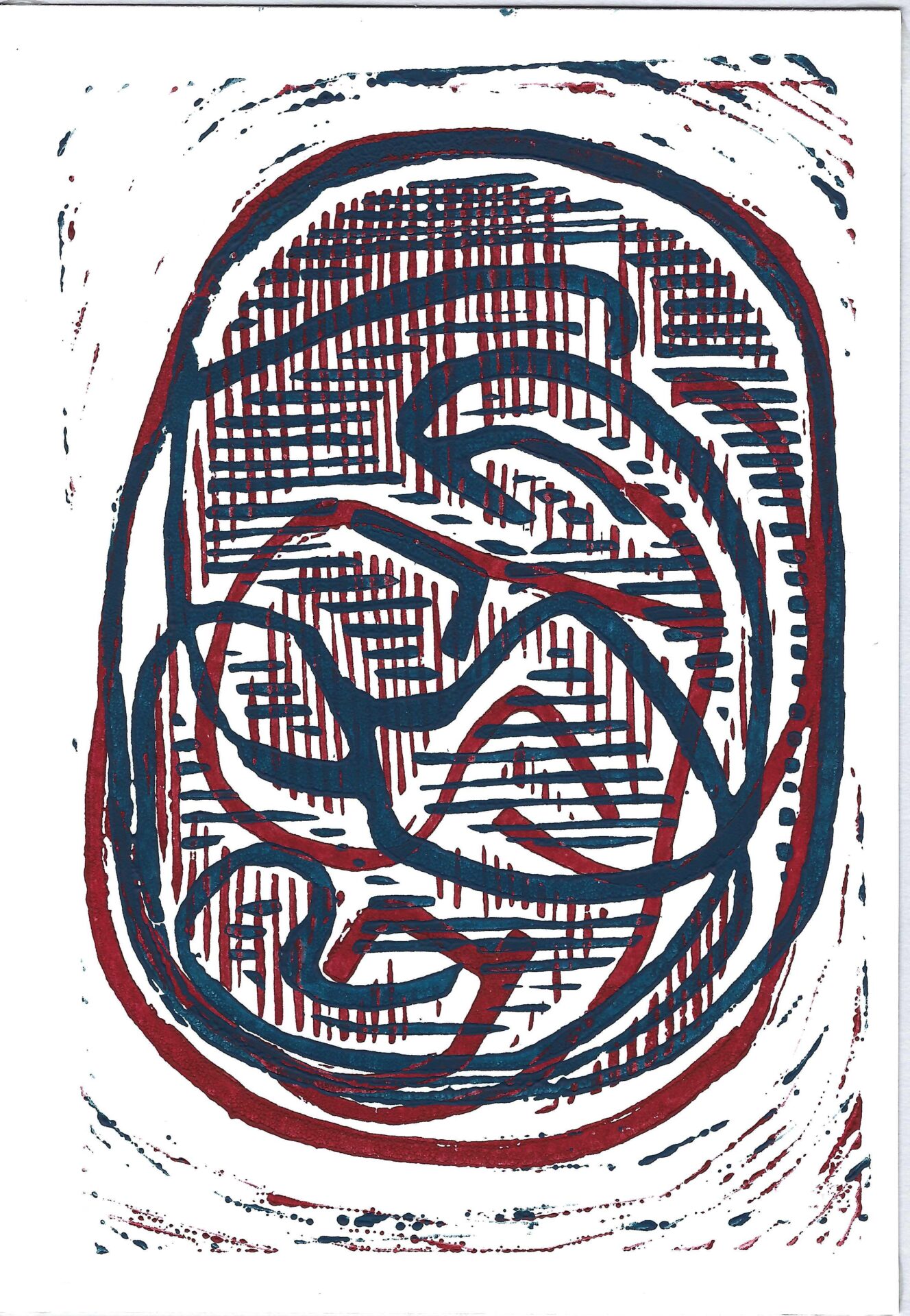the four questions
Our people has lived all over this earth. Wherever we go, we ask questions. These are some of our most famous questions, expressed in a growing variety of languages.
The youngest able recites:
Hebrew
מַה נִּשְׁתַּנָּה הַלַּיְלָה הַזֶּה מִכָּל–הַלֵּילוֹת
שֶׁבְּכָל–הַלֵּילוֹת אָנוּ אוֹכְלִין חָמֵץ וּמַצָּה; הַלַּיְלָה הַזֶּה כֻּלּוֹ מַצָּה
שֶׁבְּכָל–הַלֵּילוֹת אָנוּ אוֹכְלִין שְׁאָר יְרָקוֹת; הַלַּיְלָה הַזֶּה כֻּלּוֹ מָרוֹר
שֶׁבְּכָל–הַלֵּילוֹת אֵין אָנוּ מָטְבִּילִין אֲפִלּוּ פַּעַם אֶחָת; הַלַּיְלָה הַזֶּה שְׁתֵּי פְעָמִים
שֶׁבְּכָל–הַלֵּילוֹת אָנוּ אוֹכְלִין בֵּין יוֹשְׁבִין וּבֵין מְסֻבִּין; הַלַּיְלָה הַזֶּה כֻּלָּנוּ מְסֻבִּין
Hebrew Transliterated
Mah nishtanah ha’laylah ha’zeh mikol ha’leilot?
Shebekhol haleilot anu okhlin khametz umatzah; halailah hazeh: kulo matzah.
Shebekhol haleilot anu okhlin she’ar yerakot; halailah hazeh: kulo maror.
Shebekhol haleilot ain anu matbilin afilu pa’am ekhat; halailah hazeh: shtei feamim.
Shebekhol haleilot anu okhlin bein yoshvin uvein mesubin; haleilah hazeh: kulanu mesubin.
Yiddish
פֿאַרוואָ אין די נאַכט פֿוּן פסח אנדערש פֿוּן אַלע נאַכט פֿוּן אַ גאַנץ יאָר
אַלע נאַכט פֿוּן אַ גאַנץ יאָר עסן חמץ אָדער מצה; אַבער די נאַכט פֿוּן פסח, עסן מיר נאָר מצה
אַלע נאַכט פֿוּן אַ גאַנץ יאָר עסן אַלערליי גרינסן; אַבער די נאַכט פֿוּן פסח, עסן מיר ביטערע גרינסן
אַלע נאַכט פֿוּן אַ גאַנץ יאָר טרינקן מיר ניט אַיין אַפֿילוּ אַיין מאָל; אַבער די נאַכט פֿוּן פסח, טרינקן מיר צוײ מאָל
אַלע נאַכט פֿוּן אַ גאַנץ יאָר טרינקן מיר מיר סיי זיצנדיק אוּן סיי אָנעשאָרט; אַבער די נאַכט פֿוּן פסח, עסן מיר נאָר אָנעשאָרט
Ladino
קוּאַנְטוֹ פ’וּאִי דֵימוּדָאדָה לָה נוֹגֶ‘י לָה אֶיסְטָה מָאס קֵי טוֹדָאס לָאס נוֹגֶ‘יס
קֵי אֶין טוֹדָאס לָאס נוֹגֶ‘יס נוּן נוֹס אֶינְטִינְיֵנְטֶיס אַפִ‘ילוּ בֵ‘יס אוּנָה; אִי לָה נוֹגֶ‘י לָה אֶיסְטָה: דּוֹס בֵ‘יזֵיס
קֵי אֶין טוֹדָאס לָאס נוֹגֶ‘יס נוֹס קוּמְיֵינְטֶיס חָמֵץ אוֹ מַצָה; אִי לָה נוֹגֶ‘י לָה אֶיסְטָה: טוֹדוֹ אֶיל מַצָה
קֵי אֶין טוֹדָאס לָאס נוֹגֶ‘יס נוֹס קוֹמְיֵנְטֶיס רֵיסְטוֹ דֵּי וִידְרוּרָאס; אִי לָה נוֹגֶ‘י לָה אָיסֶטָה: לִיג’וּגָה
קֵי אֶין טוֹדָאס לָאס נוֹגֶ‘יס נוֹס קוֹמְיֵנְטֶיס אִי בִּיבְ‘יֵנטֶיס קְיִן אַסֶינְטָאדוֹסּ אִי קְיֵין אַרֵיסְקוֹבְ‘דָּאדוֹס; אִי לָה נוֹגֵ‘י לָה: אֶיסְטָה טוֹדוס נוֹס אַרֵיסְקוֹבְ‘דָאדוֹס
Russian
Уем отличается эта ночь от других ночей?
Во все другие ночи мы едим либо хомец, либо мацу в эту ночьтоль ко мацу;
Во все другие ночи мы едим разную зелень, а в эту ночь-лтшь горькую;
Во все другие ночи мы ни разу не обмакиваем /пищу/, а в эту ночь-дважды;
Во все другие ночи мы едим сидяили возлегая, а в эту ночь-возлегая.
Japanese
今夜はなぜ他の全ての夜とは違う夜なのでしょうか?
ー 他の全ての夜、私たちは種の入ったパンと種の入っていないパンの両方を食べます。 けれども、今夜は種の入っていないパンだけを食べます。
ー 他の全ての夜、私たちはありとあらゆる野菜を食べます。 けれども、今夜は特別 に苦い野菜だけを食べます。
ー 他の全ての夜、私たちは一度たりとも野菜を何かに浸けて食べることはありません。 けれども、今夜は2回野菜をくりかえし浸けて食べます。
ー 他の全ての夜、私たちは座ったり体を倒して食事をします。 けれども、今夜は 体を倒して食事をします。
Japanese へブライ語読み方 Hebrew Transliterated
マァ ニシュタナ ハレイラァ ハゼァ ミコル ハレイロッ?
シェヴェゴーゥ ハレイロッ アヌ オクリン カメヅ ウマヅァー; ハライラァハヅァ: クロ マヅァ
シェヴェゴーゥ ハレイロッ アヌ オクリン シアァ ヤェラコッ; ハライラァ ハヅァ: マロァ
シェヴェゴーゥ ハレイロッ アイン アヌ マッビリン アフィル パァム エガッ; ハライラァ ハゼァ: シュツァイ フェアミン
シェヴェゴーゥ ハレイロッ アヌ オクリン ベイン ヨシュヴィン ウヴェイン メスビン; ハレイラア ハゼァ: クラヌ メスビン
English
How is this night different from all other nights?
On all other nights we eat both leavened and unleavened bread; on this night: only unleavened.
On all other nights we eat the whole gamut of vegetables; on this night: we specifically eat bitter vegetables.
On all other nights we don’t make a practice of dipping our vegetables even once; on this night: we do it twice.
On all other nights we eat either in a sitting or a reclining position; tonight: we recline.
I was pleased to learn this morning, as I read her blog post “Whadaya know?”, my little creation that follows has entered American Jewish practice (at least in one family). The text as it appears here (slightly modified) appears in Haggadot I prepared that I have on my hard drive dated 1990. In @2005 I sent my entire Haggadah collection to the Frances-Henry Library at HUC-JIR in Los Angeles. Likely a few of my earlier “drafts” shows other variants.
Thank you Phyllis!
on the importance of questions
The eldest reads:
Nobel Prize winning physicist Isaac Isadore Rabi’s mother did not ask him: “What did you learn in school today?” each day. She asked him: “Did you ask a good question today?”
more questions
The oldest teenager, or the person older than 19, yet closest to the teen years reads:
Why do the same questions get asked each year?
I probably have more questions than the youngest, why does a child ask the questions?
How many questions do I have: 
How come we ask these questions, but you rarely give a straight answer?
Do you have other questions to add?
some answers
Questioning is a sign of freedom, and so we begin with questions.
To ritualize only one answer would be to deny that there can be many, often conflicting answers.
To think that life is only black and white, or wine and Maror, bitter or sweet, or even that the cup is half empty or half full is to enslave ourselves to simplicity.
Each of us feels the challenge to search for our own answers. The ability to question is only the first stage of freedom. The search for answers is the next.
Can we fulfill the promise of the Exodus in our own lives if we do not search for our own answers?
Does every question have an answer? Is the ability to function without having all the answers one more stage of liberation? Can we be enslaved to an obsessive search for the answer?
Do you have the answer?
what is “#blogexodus”?
My friend and colleague Phyllis Sommers has thought of yet a new creative way to prepare for Peasach. You can learn more here.


